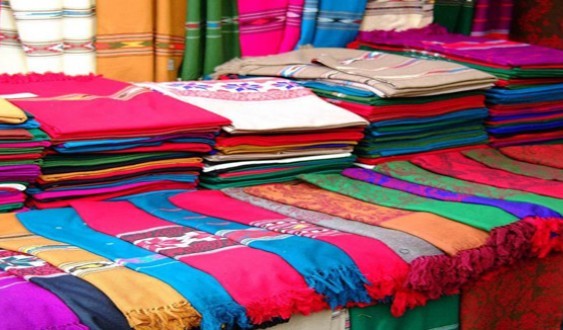
LOCAL textile industry has been operating at below 30% of capacity in the first-half of the year owing to an influx of cheap imports, an industry official has said.
BY MTHANDAZO NYONI

Zimbabwe Textile Manufacturers’ Association (ZTMA) secretary-general Raymond Huni told NewsDay that the industry was still depressed at the moment as the government was yet to gazette Statutory Instruments (SIs) discouraging cheap imports of textile products into the country.
“The textile industry has been operating at below 30% of capacity in the first half of the year. The government is in the process of gazetting the SIs enforcing the rebates introduced by the Finance minister (Patrick Chinamasa). We hope that the SI would be gazetted in two weeks’ time and it’s when we will start realising some changes,” he said.
Huni said the sector knows that government has no money and this was the reason why it needed protection from cheap imports.
He said some companies such as National Blankets who applied for the Distressed Marginalised Areas Fund have not yet received it.
He welcomed the ban on second-hand clothes saying if implemented would see the sector double its contribution to Gross Domestic Product to 10%.
- Chamisa under fire over US$120K donation
- Mavhunga puts DeMbare into Chibuku quarterfinals
- Pension funds bet on Cabora Bassa oilfields
- Councils defy govt fire tender directive
Keep Reading
In his Mid-Term Fiscal Policy review, Chinamasa introduced the manufacturers’ rebate of duty on critical inputs imported by approved textile manufacturers.
This rebate will cover spare parts, yarn and unbleached fabric, among others.
Furthermore, it was proposed to remove blankets from the Open General Import Licence for a period of 24 months.
Poly-knitted fabric is currently imported in semi-processed form, hence undergoes very limited local value addition before transformation into a blanket, which competes with locally manufactured blankets.
To that effect, government will increase customs duty on poly knitted fabric from 10% to 40% plus $2,50 per kg. Local textile industry is currently in distress with Bulawayo in particular which used to be a major textile centre having many companies either scaled down or closed.
Some of the companies that have closed include True Value, Label Fashion, Suntosha Leisure Wear, Luncaster, Harren Manufacturing, Ascot, Belmor Fashions, Cinderella and Rusglen Fashions.
Recently, textile and clothing manufacturers cried foul over the alleged abuse of the Sadc and Common Market for Southern Africa (Comesa) trading certificates by countries outside the region.
The associations said Sadc and Comesa certificates were now being abused by outside countries.
The textile sector requires at least $20 million to revive the industry currently reeling under low capitalisation levels and an influx of cheap imports.
The $40 million Distressed Marginalised Areas Fund (Dimaf), which was created in 2010 to help companies retool, largely failed to turnaround the industry’s fortunes.











